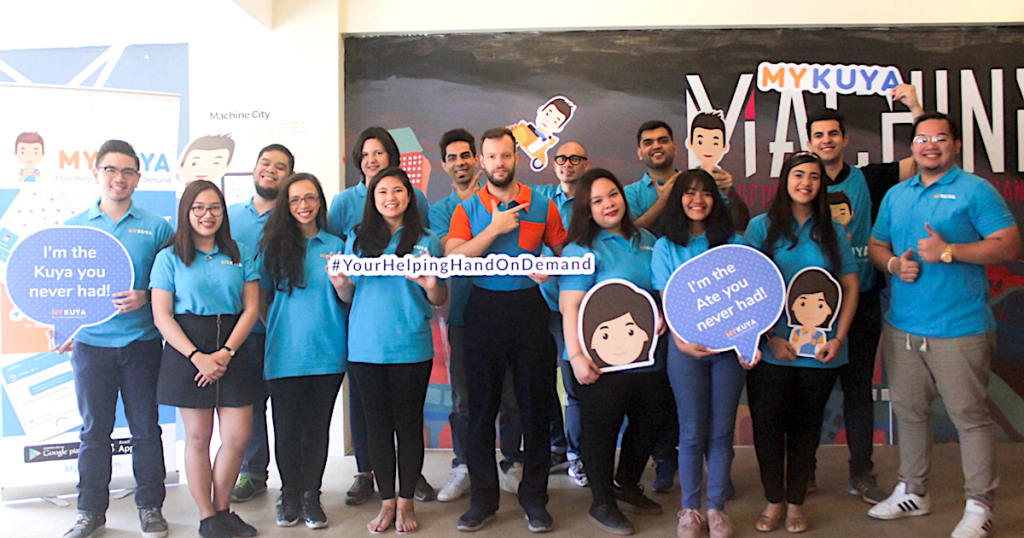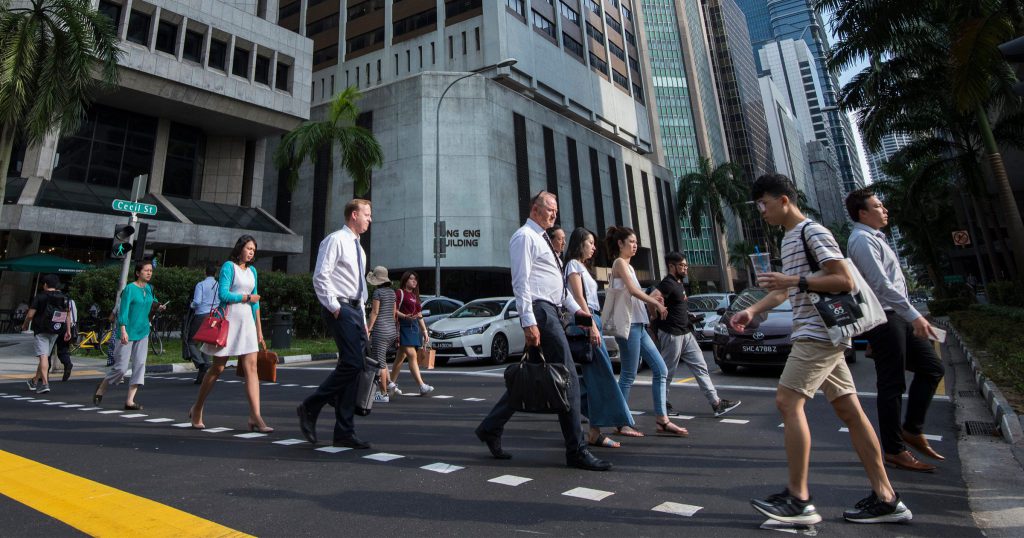So many things to do, so little time.
There have been many days where we’ve felt that way: that there’s not enough time in a day to do all the things you needed to do because you’re just so busy.
(Or you’re simply too lazy, so you tend to procrastinate and drag the time).
Based on this behavioural trend, Machine Ventures CEO Shahab Shabibi rolled out an on-demand service called Hey Kuya in September 2015.
This service basically allows users to send in a text request to help run their errands – for free.
Subscribers are usually waitlisted from as short as 48 days to as long as two months, but this waiting time gets shorter with every friend recommendation.
Although it gained quite a huge traction, it was rather short-lived as it ceased operations in November 2016.
The closure came only eight months after YesBoss, a Jakarta-based group that also operated a personal errands business in Indonesia acquired the Manila startup.
But Shahab didn’t want to give up on the idea just yet and believed that it has tremendous potential.
Even when it closed, the service had over 30,000 subscribers, proving that there is a demand.
From Hey Kuya To MyKuya
Fast forward six months later, Shahab launched a mobile app that leverages on the same concept called MyKuya.
Similar to HeyKuya, it outsources the manpower needed for various errands. The major difference is that users have to pay this time round – a minimal fee of Php49 (US$0.92) for half an hour.
Also, HeyKuya is only available for service from 9am to 8pm, but MyKuya is available round-the-clock.

Through the app, users can request for AteNOW (female runners), KuyaNOW (male runners), or KuyaMOTO (male motorcycle riders).
Powered by a proprietary matching algorithm and technology, MyKuya instantly matches users in need of help to the right service personnel to fulfil the task.
After getting a match, users can chat with the helper to discuss more about the task. The app also lets users track the progress of the errand until it’s been completed.
So what do users typically request for?
“Majority of the use-cases have been around food delivery from restaurants that don’t usually deliver, looking for items to purchase in stores and malls, cleaning and dishwashing, payment of bills and even pet-sitting or representing our customers to do tasks at government offices and agencies, like retrieving a confiscated driver’s license with authorisation letter from LTO,” Shahab told Entrepreneur PH.
But since it’s time-based, how does MyKuya ensure that their partners are not just taking their own sweet time to complete a task?
“For every task that the Kuyas and Ates do for us, we monitor their performance heavily to ensure the optimal completion. We find ways and develop programs that reward and motivate our partners to finish a task fast and completely at the highest quality” said MyKuya, according to the company’s FAQ.
Reducing Unemployment By Creating Job Opportunities
Besides the general public, small businesses also flocked to MyKuya to help solve their business woes, particularly in hiring.
According to Shahab, at least 40 firms have used the app to employ people to help out with tasks such as data encoding, manning booths, and packing.
Some have also used the app to hire waiters and bartenders as well, he added.
Since the app’s soft launch early this year, it has gained 20,000 downloads and over 2,000 partners.

Its pool of partners is rapidly growing thanks to the company’s various partnerships with Barangays, NGOs and partner universities.
Moreover, the sign-up process is very simple. Aspiring partners only need to provide basic documentation such as government-issued IDs, National Bureau of Investigation (NBI) Clearance, and Barangay Clearance.
Partners can also earn a substantial amount via MyKuya – comparable to, or even higher than the minimum wage in Metro Manila, which stands at Php 512 (US$9.57) a day.
They receive 60 to 80 per cent of the customer’s total spend, subject to their performance and time-specific incentives offered by MyKuya.
This means that a MyKuya partner can potentially earn between Php470 (US$8.79) and Pho627 (US$11.72) for an eight-hour work day.
And like all freelancers, MyKuya partners also enjoy the flexibility and convenience of working anytime, anywhere.
“This is the beginning of a journey for us to create equal opportunities and provide job opportunities to anyone who wants one. Our goal is to create 1 million job opportunities by 2022 in the Philippines,” said Shahab, according to the company’s media statement.
“[We learnt] from ride-sharing platforms like Uber, Grab, and other TNVS which provided drivers an opportunity to work on-demand. With the MyKuya app, we have tried to build a tech-based solution that embraces the spirit of a shared economy that builds the base on values of mobility and gig economy, which we feel is the future of work and services.”
Currently, the app is still in the beta stages and is limited to only Metro Manila-based users, especially those based in Makati and Bonifacio Global City.
With regards to future plans, Shahab says that they plan to add more categories and build up a portfolio of various on-demand services as the platform grows.
“We believe in sustaining the rapid economic development that the Philippines is experiencing. [We want to] create labor mobility through data-driven decision-making and tap into the potential of human capital to develop the domestic economy. [We] see this as a chance to upskill and uplift the country,” he told Inc. Southeast Asia.
Featured Image Credit: MyKuya














